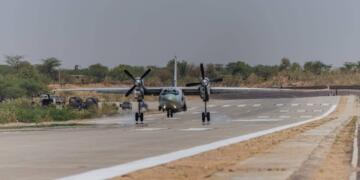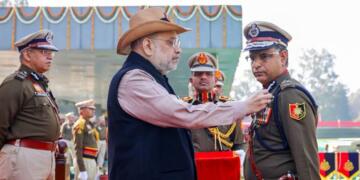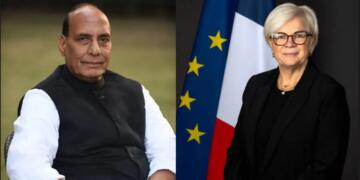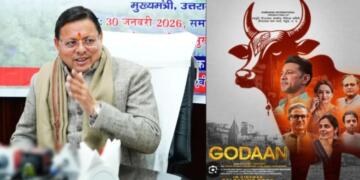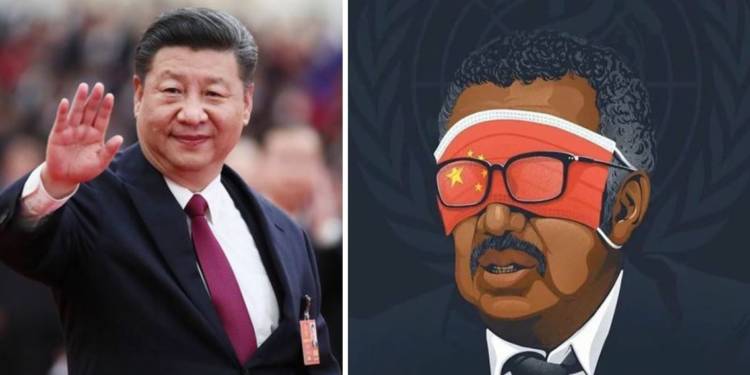The Wuhan virus pandemic is engulfing the world by the day. Amidst the entire proceedings, the World Health Organisation’s (WHO) shady role has come under the scanner, with governments across the world questioning its role and failure to inform and advise the world on the severity of the novel coronavirus outbreak.
You may wonder how China managed to turn the WHO chief into its puppet, and why most international organizations do not speak about all the millions of problems that exist with the Communist regime of China. The answer is simple. China has injected millions of dollars and infiltrated top-tier positions in nearly every international body and it is not afraid to use them to its favour every now and then.
The United States of America under President Donald Trump has let go of the wheel of major international organizations by cutting funding and participation in these institutions (Read; UN, WHO, FAO). As a result, there has been a major power vacuum and China has grabbed this opportunity with both hands.
Whether through specialized UN agencies or peacekeeping, China is racing to fill the vacuum in international leadership left by the withdrawal of the U.S. from multilateral platforms. China is taking advantage of the lack of convergence among the permanent members of the Security Council on many global issues.
China through its muscle and money power has bought them all out and infiltrated the top tiers. The communist country’s growing clout in international organizations is creating new fault lines in global politics, and the WHO has been an early frontline victim.
Dr Tedros Adhanom Ghebreyesus, the Director-General of WHO, is being held responsible for colluding with China to spread the fake narrative of Wuhan Virus not transmitting from Human to human. Dr Tedros played down the fears of the virus turning into a major pandemic, despite mounting pieces of evidence. The Ethiopian politician Tedros, is also being seen as a Chinese-backed candidate, a viewpoint that has only been strengthened in the recent weeks.
While Beijing informed the WHO on December 31, there are expert estimates that the virus had spread to humans as far back as October. Even after being told, the WHO showed no urgency to send an investigative team, careful not to displease the Chinese government. A joint WHO-Chinese team went to Wuhan only in mid-February and wrote a report with decidedly Chinese characteristics.
WHO did not act irresponsibly earlier. When the SARS outbreak occurred in 2002-03 in China, the country was yet again slow to acknowledge the epidemic but it was WHO was quickly pulled up the Chinese socks and recommend travel restrictions and criticized China for delaying the submission of vital information that would have limited the global spread of SARS.
The then Director-General of WHO, Dr Gro Harlem Brundtland, implored the international community to investigate possible animal reservoirs that could be a source for future outbreaks and better study the movement of the virus to humans. China’s wet markets were specifically identified as a likely environment for the virus to incubate and jump from animals to humans.
Eager to expand its influence on the world stage in ways that serve its interests, China has placed considerable resources behind an effort to present its leadership at the UN as a nimbler, more dynamic alternative to that of the United States. Beijing is actively seeking to use platforms like the UN to legitimize and spread its ideology. And to some extent, it has steadily filled in the vacuum with its propaganda.
The Chinese government, the second-largest contributor (10.8%) to the UN budget, has been considering the question of how to send more Chinese to work in the UN system. China has been continuously revamping its human resource deployment to organizations like the UN.
In June last year, the Indian government quietly withdrew the candidate it had nominated for the post of Director-General of the Food and Agriculture Organization. As India faced certain defeat to China’s Qu Dongyu, New Delhi, in order to soften the humiliation at the multilateral forum, pulled back. The election of the Chinese vice-minister for agriculture to head the UN’s largest technical agency was a significant victory for Beijing as it seeks to expand its diplomatic influence. Qu won the ballot in Rome securing the votes of 108 of the 191 participating countries without much campaigning.
Another example of a UN body going China’s way is UN Educational, Scientific and Cultural Organization (UNESCO). In 2011, the United States cut off $80 million in annual funding to UNESCO—about 22 per cent of its entire budget. China raced to fill the void, pledging millions of dollars in extra-budgetary support for education programs. Beijing has increased its monetary contributions to the United Nations fivefold in the past decade thereby cementing its position to control any narrative that it thinks suits its stance.
Union Nations Humans Rights Commission (UNHRC) has also been uncharacteristically mum on the entire Uighur Muslims escapade happening under its nose. At the UNGA last year, the body did not take any action against China, albeit accepted its version that its concentration camps are just “vocational training centres”. With increasing donations to the UN, China has been planning to reinforce its influence on the administrative and budgetary committee, which in turn controls the budget of the Human Rights Council.
Again, the UN’s severe underfunding problem coupled with the US withdrawal from UNHRC has helped China to take the front seat of another important UN body. China has gone as far as suggesting the phrase “human rights defender” to be removed from the UN lexicon.
In the past few years alone, the Chinese Communist Party (CCP) has positioned its officials to head up four of the UN’s 15 specialized agencies, while the United States leads only one. It has also advanced more than two dozen memorandums of understanding in support of its Belt and Road Initiative (BRI) and mobilized a consortium of illiberal states to tamp down international criticism of its repression of ethnic Uighurs in Xinjiang Province.
China now provides the most troops for UN peacekeeping missions among the permanent members of the Security Council and contributes 10.25 per cent to the peacekeeping budget. As a result in October last year, President Xi Jinping led China’s biggest-ever military parade to mark the 70th anniversary of Communist rule, for the first time a contingent from the country’s 8,000-strong UN peacekeeping standby force participated.
The examples are aplenty where China has ascended the foremost power positions and hence it is no surprise that China has been going all out to douse the fire of Wuhan virus debacle. It is using international forums and media to project an image that China is the victim here. With the clout China enjoys in the global scheme of things it is difficult to gauge whether the US and other countries would be able to nip China’s advances in the bud. The world has been caught napping and amidst all that, China has gained the upper hand. Ultimately, the response to China in the wake of the Wuhan Virus pandemic would dictate where the world power axis sits.


